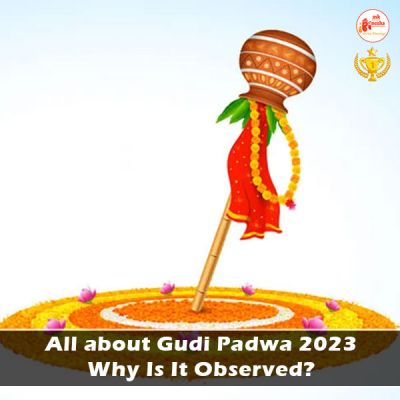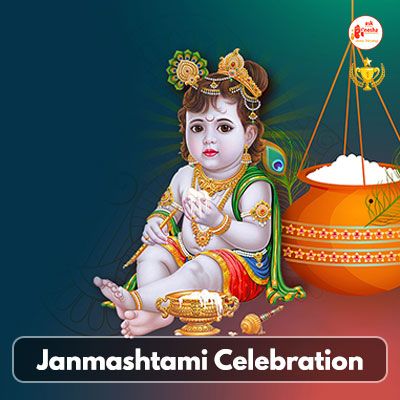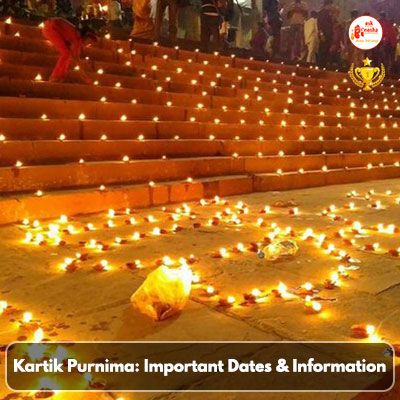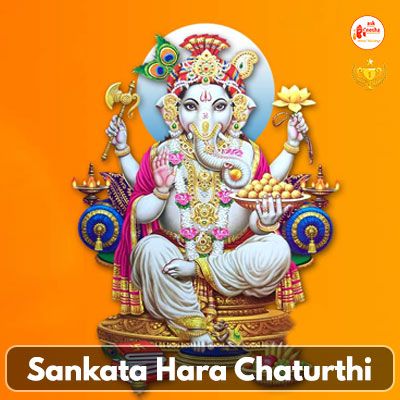Gudi Padwa is a spring festival celebrated by the people of Maharashtra, India. It falls on the first day of the Chaitra month, which typically falls in March or April. In 2023, Gudi Padwa will be celebrated on Wednesday, 22nd March. The festival is celebrated with great enthusiasm and involves various customs and traditions, including the decoration of houses with colorful rangolis, the hoisting of a gudi (a bamboo staff with a colorful cloth and an inverted copper or silver vessel) outside the house, and preparing and sharing traditional Maharashtrian sweets and delicacies.
Gudi Padwa is a festival that marks the beginning of the New Year according to the Hindu lunar calendar. It is celebrated mainly by the people of Maharashtra, but it is also celebrated in other parts of India under different names like Ugadi, Cheti Chand, and Navreh. The festival is celebrated on the first day of the Chaitra month, which is the first month of the Hindu lunar calendar.
The word 'Gudi' refers to a flag or a banner, and a 'Padwa' is a Sanskrit word that means the first day of the lunar month. So, the term 'Gudi Padwa' means the first day of the New Year when a flag or banner is hoisted to symbolize the victory of good over evil.
On this day, people decorate their houses with colorful rangolis and flowers. They also prepare traditional Maharashtrian sweets like Puran Poli, Shrikhand, and Karanji. The gudi, which is a bamboo staff, is decorated with a colorful cloth and an inverted copper or silver vessel. The gudi is then hoisted outside the house, usually on a window or a balcony, as a symbol of victory and good luck.
In addition to the hoisting of the gudi, people also visit temples and offer prayers to seek blessings for the New Year. It is also a day for families and friends to gather together, exchange greetings, and share traditional Maharashtrian delicacies.
Gudi Padwa is actually a festival that celebrates the beginning of a new year and the triumph of good over evil. It is a day of joy, happiness, and togetherness for the people of Maharashtra and is celebrated with great enthusiasm and fervor.
The Significance of Gudi Pawa
• Gudi Padwa is an important festival for the people of Maharashtra, and it has great significance in the Hindu culture. There are various reasons why this festival holds so much importance, some of which are:
• New Year: Gudi Padwa marks the beginning of the New Year according to the Hindu calendar. It is a time when people welcome the new year with positivity and hope for a prosperous and happy year ahead.
• Victory of Good over Evil: Gudi Padwa is celebrated to mark the victory of good over evil. According to legend, Lord Rama returned to Ayodhya after defeating the demon king Ravana on this day. The gudi is hoisted outside the house as a symbol of victory, and it represents the triumph of good over evil.
• Agricultural significance: Gudi Padwa is also an agricultural festival that signifies the beginning of the spring season. It is a time when farmers begin their preparations for the upcoming agricultural season, and it is considered an auspicious day for starting new ventures.
• Spiritual significance: Gudi Padwa is also considered a day of spiritual significance. People visit temples and perform puja to seek the blessings of the Almighty for a happy and prosperous year ahead.
• Overall, Gudi Padwa holds great significance for the people of Maharashtra, and it is a time when they come together to celebrate the beginning of a new year and the triumph of good over evil. It is a day of joy, happiness, and positivity, and it is celebrated with great enthusiasm and fervor.
• Historical significance: Gudi Padwa has a historical significance as well. According to some historical records, the festival was celebrated during the reign of the Satavahana dynasty, which ruled in the Deccan region from the 1st century BCE to the 3rd century CE. It is believed that the Satavahanas celebrated the festival to mark their victories in battles.
• Social significance: Gudi Padwa is also a social festival that brings people together. It is a time when families and friends come together to celebrate the beginning of a new year, exchange greetings, and share traditional delicacies. It is a time when people forget their differences and come together to celebrate the joy and happiness of the festival.
• Symbolism: The gudi, which is hoisted outside the house on Gudi Padwa, has great symbolism. It is believed to ward off evil and bring good luck, prosperity, and success. The inverted vessel on top of the gudi is believed to represent the victory of good over evil, and the cloth that adorns the gudi symbolizes joy and happiness.
• Astrological significance: According to astrology, Gudi Padwa is an auspicious day for starting new ventures, buying new property, and initiating new projects. It is believed that any new activity started on this day will be successful and bring prosperity and happiness.
Spiritual Significance of Gudi Pawa
The spiritual significance of Gudi Padwa is deeply rooted in Hindu mythology and beliefs. It is a time when people offer prayers and seek the blessings of the Almighty for a happy and prosperous year ahead. Here are some of the spiritual significances of Gudi Padwa:
• Renewal of spiritual energy: Gudi Padwa is considered a time for renewal of spiritual energy. It is believed that on this day, the energy in the environment is in a state of transition, and people can tap into this energy to renew their spiritual energy.
• Purification: Gudi Padwa is also a time for purification of the mind, body, and soul. It is believed that by observing fasts, performing puja, and practicing meditation, one can purify oneself and gain spiritual strength.
• Auspicious time: According to Hindu astrology, Gudi Padwa is an auspicious time for starting new ventures, making investments, and initiating new projects. It is believed that any new activity started on this day will be successful and bring prosperity and happiness.
• Divine blessings: Gudi Padwa is a time when people offer prayers to the Almighty and seek divine blessings for a happy and prosperous year ahead. It is believed that by performing puja and offering prayers, one can invoke the blessings of the divine and receive their grace.
• Celebration of the divine: Gudi Padwa is also a time to celebrate the divine. It is believed that by celebrating the festival with joy and happiness, one can express their gratitude to the divine and receive their blessings.
The spiritual significance of Gudi Padwa lies in its ability to renew spiritual energy, purify the mind, body, and soul, and seek divine blessings for a happy and prosperous year ahead. It is a time when people come together to celebrate the divine and express their gratitude to the Almighty.
How Gudi Pawa is Observed?
Gudi Padwa is a festival that is celebrated with great enthusiasm and fervor in the state of Maharashtra, and it is observed in the following ways:
Preparation of the Gudi: The day before Gudi Padwa, people clean their homes and decorate their doorways with rangoli designs. On the day of the festival, they prepare the Gudi by taking a long bamboo stick and tying a piece of silk or cotton cloth with a golden or yellow border to it. An inverted copper or silver vessel is placed on top of the cloth, and a garland of flowers is tied around the stick. The Gudi is then hoisted outside the house or in a prominent place in the community.
Puja: On Gudi Padwa, people wake up early in the morning and take a bath. They then perform Puja to the Gudi and offer prayers to the Almighty. The Puja involves lighting lamps, offering flowers, and performing aarti. Some people visit temples and pray to the deities.
Special delicacies: Gudi Padwa is a time when common people prepare special delicacies to celebrate the festival. Some of the traditional dishes prepared on this day include Puran Poli, Shrikhand, Kothimbir Vadi, and Aamti. These dishes are shared with family and friends, and people exchange greetings and gifts.
Cultural programs: Many cultural programs and events are organized on Gudi Padwa to celebrate the festival. These include traditional dances, music performances, and other cultural activities.
Community celebrations: Gudi Padwa is also celebrated in a community setting, where people come together to celebrate the festival. Many housing societies organize events and activities, such as rangoli competitions, games, and cultural programs. People also visit their friends and relatives to exchange greetings and gifts.
In conclusion it can be said that Gudi Padwa is a festival that is observed with great enthusiasm and fervor in Maharashtra. It is a time when people come together to celebrate the New Year, offer prayers to the Almighty, and seek blessings for a happy and prosperous year ahead. The festival is celebrated with traditional delicacies, cultural programs, and community gatherings, and it holds a special place in the hearts of the people of Maharashtra.























 Translate
Translate